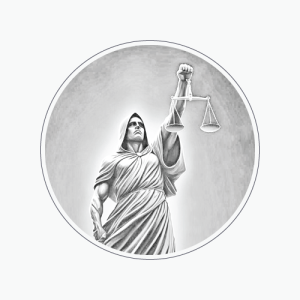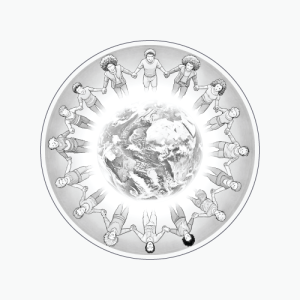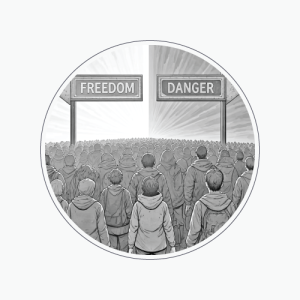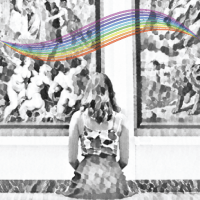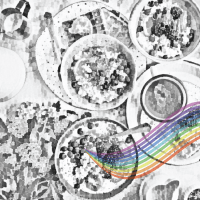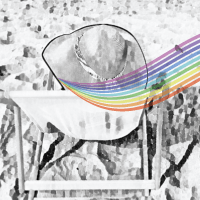
targeting minority groups
Politicising the vulnerable
- Atilla Tiriyaki
- Average Reading Time: 10 minutes
- Community
- articles, atillat
Many countries have failed to recover ever since the economic crash in 2008. People are rightfully frustrated with record-high unemployment, increased numbers living in poverty, and general discontentment. Many individuals globally are becoming impatient for the change desperately needed within their local communities and country as a whole. These frustrations are causing many to turn to more socialist and right-wing politics hoping it will bring about the change they seek. Not because they believe in the ideology; instead, these right-wing groups foster protectionism and the image of a return to old and better times.
The parties providing this false hope typically advocate nationalism, promoting a sense of identity. Keeping what we have, keeping everyone else out, and returning to better times, all under the guise of the national interest. Narratives preying on people’s hopes and fears, masking more dangerous mandates and beliefs that, once elected, have a more significant impact than just the narratives that helped elect them. Many of these policies ignite strong held beliefs and portray a return to happier times, all of which will never be achieved.
The approach adopted by these politicians is simple, focus on what makes us different rather than those things we all have in common. Often, it is the minority groups that become the focus and target of these types of national campaigns. The narratives conveniently ignore the significant contributions that many of these minority groups make to the society or country as a whole, as it does not support their agenda.
The minorities are usually easy targets when looking at any given population within a country. There is always a majority, a large population of people from the same ethnicity and likely follow the same religion and share similar beliefs. The majority will usually make up a significant proportion (50% or more) of the total population. The remaining population comprises smaller groups sharing similar attributes, beliefs or ethnicities. All of these smaller groups are what we would call minorities.
Minorities are people from various races and follow different religions and beliefs. In terms of the LGBTQ+ community, this minority will likely be individuals from both the majority and minorities in terms of race and religion. The only difference is how they identify or who they love. A community member can go from having full rights as a citizen, the right to marry, serve their country, adopt, etc., and have those rights taken away. They are often taken away simply because they choose to be honest about who they love or how they choose to identify. The LGBTQ+ community is typically classed as a minority group, as it is estimated that community members are likely lower than 15% of the total population within any given country.
When people are discontent due to long periods of hardship, governments often deploy distractions, averting the masses from calling out and understanding what is going on. Throughout history, governments that fail to change their approach or do not find new ways to distract their populations have been toppled. History is full of empires, governments and long-established regimes disappearing through uprisings and unrest amongst the masses.
Rather than tackling the problems many people face within their country, distractions are created, often targeting emotive themes and vulnerable people. One such example is the refugee crisis that has now gone on for over 17 years. The most important thing to note is that there are two distinct groups concerning refugees. The first group are economic migrants (not refugees), those leaving their country due to poverty and hardship with the desire to improve their quality of life. The second group are political refugees, forced to leave their homes due to war and civil unrest. Though there is nothing wrong with economic migrants, they are forced to leave him due to their environments rather than safety.
Since the Iraq War commenced in 2003, there have been many wars and conflicts around the world, including the Syrian civil war, Libyan civil war, Darfur conflict, Afghanistan war, Yemeni civil war, the Ukraine conflict and many more. Regardless of the reasons and justifications for these wars, many political refugees have been forced to leave their homes and countries for no fault of their own. Many of the countries granting asylum often even played a part and have some accountability for the events that led to their displacement. Countries that have previously ignored the atrocities that were going on. Even participated in, supported, funded or profited from these unrests or wars, at some point
Over the past five years, there has been an increase of campaigns targeting these political refugees and other areas relating to morality, such as false claims about Islam, respecting the structure of the traditional family and refusing to give equal rights. These distractions and campaigns play on the fears and often the lack of understanding of groups and individuals, who are often different and misunderstood by the majority. The strategy and approaches are going on today and are helping to get politicians elected or allowing them to hold onto power; however, what is really being achieved?
The battle is won, small groups of people have their rights stripped or worse; however, what has improved for everyday citizens? Has the number of unemployed reduced? Are people richer? The answer is likely no; instead, these tactics and campaigns have targeted those most afraid and vulnerable and distracted people for a time. Their direct actions have highlighted and made people fear or dislike groups that they still do not know or understand.
History shows that this approach always plays out the same way. You suppress one group, then another, and so on. When the strategy no longer applies, these governments start looking for distractions internationally. Going into phase two, they will focus on groups globally that are different or hold more polarised ideologies than their own, often ending in conflict. Then finally, after all that, people have enough, resulting in widespread riots and uprising. These governments are finally then voted out or toppled. Look through history and compare the events and circumstances that lead to revolutions and even world wars. Now compare that to what is going on within many countries right now. The hope, though, is we have all learnt from history and do not repeat all of the mistakes previously made. The fact is, advocating any form of discrimination or hate campaigns may prop up regimes and distract for a while. Still, it is an approach that never lasts forever.
Which people or groups are highlighting and even counteracting these distractions and campaigns? One such group would be the political activists. It takes a particular type of person to become an activist; some choose, while others are thrust into the spotlight and become activists through their circumstances. Activists are highlighting and effectively going against the majority within a country, often at significant personal risk to themselves, becoming targets or even risking their lives. Many of these activists believe so much in what they are doing that they willingly accept the risks to fight injustice. Activists are often portrayed negatively; however, the simple truth is that these activists exist because of the prejudices and targeted campaigns going on around the world. These exceptional individuals feel so strongly that they are fighting against the odds, against powerful governments, conglomerates and colossal wealth. Activists are vilified, imprisoned, and even losing their lives fighting for what they believe in and what is right. However, in most cases, you rarely hear of an activist fighting for people’s rights on the wrong side of history.
If you apply the principle that everyone who lives in any given country has the same rights, the right to vote, the right to marry, receive an education etc. Finally, no one is discriminated against due to being a minority. When there is little to no inequality, there is little to no reason for large scale political activism. Next, ask yourself what the world would be like without activists? Women might not have the right to vote, segregation and apartheid might still exist, and mass genocides would be going on without anyone knowing about it.
Governments, in some cases, are fuelling the behaviours; however, the simple truth is that no government can stop the will of the many. It only happens when everyone wants change to occur.
With more countries moving centre-right or close to the far right, there are more stories of inequalities and specifically for the LGBTQ+ community, gay-free towns and governments vowing to fight the LGBT ideology. Lacking the understanding that no city, town or village is 100% gay free, just that there are groups of people living in those societies in fear and skilled in hiding who they are. Fearful and feeling no escape, with many over time unable to continue living a lie, causing them to leave or, worse, take their own lives. Around the world today, there has been an increase in the number of people taking their lives for a whole host of reasons, including LGBT related issues.
Minorities are powerless to change who they are, how they look, feel, or are wired. Making a choice is different, living a certain way or following a specific approach or religion. When it is who you are, you have no option but to fight for your rights or flee. Fair representation can be problematic when you are part of a small minority. Other minority groups may even side with and agree with the majority regarding handling LGBTQIA+ people and their rights. For the global LGBTQ+ community, many coming forward to represent the community are doing so, often risking their lives, and having to be outed to their friends and family. There is some good news that things are changing. In 2020, in the USA alone, there were over 400 individuals that identified as LGBT running in the US elections, including one openly gay man that ran for the Democratic presidential nomination.
The world is a difficult place for so many, full of so much uncertainty and change. People have the right to feel frustrated; however, it should be focused and directed to the areas that directly impact their lives and not target vulnerable minorities or groups. It is okay for people to hold personal views and beliefs, however imposing them, stripping other people of their rights, especially as it has no impact on them or will change their personal situation or circumstances.
For those fearful and who believe in the LGBT ideology narrative, ask yourself, what would you do if it was your child or grandchild. Someone you love, asking to speak to you because they are distressed and do not know what to do. Telling you that they are different or have fallen in love with someone of the same sex and are just looking for your love and support, what do you do?
Everyone around the world should hold their governments and politicians to account. We are all on this earth for such a short amount of time, so be the change you want to see in the world and remember love is love.





















